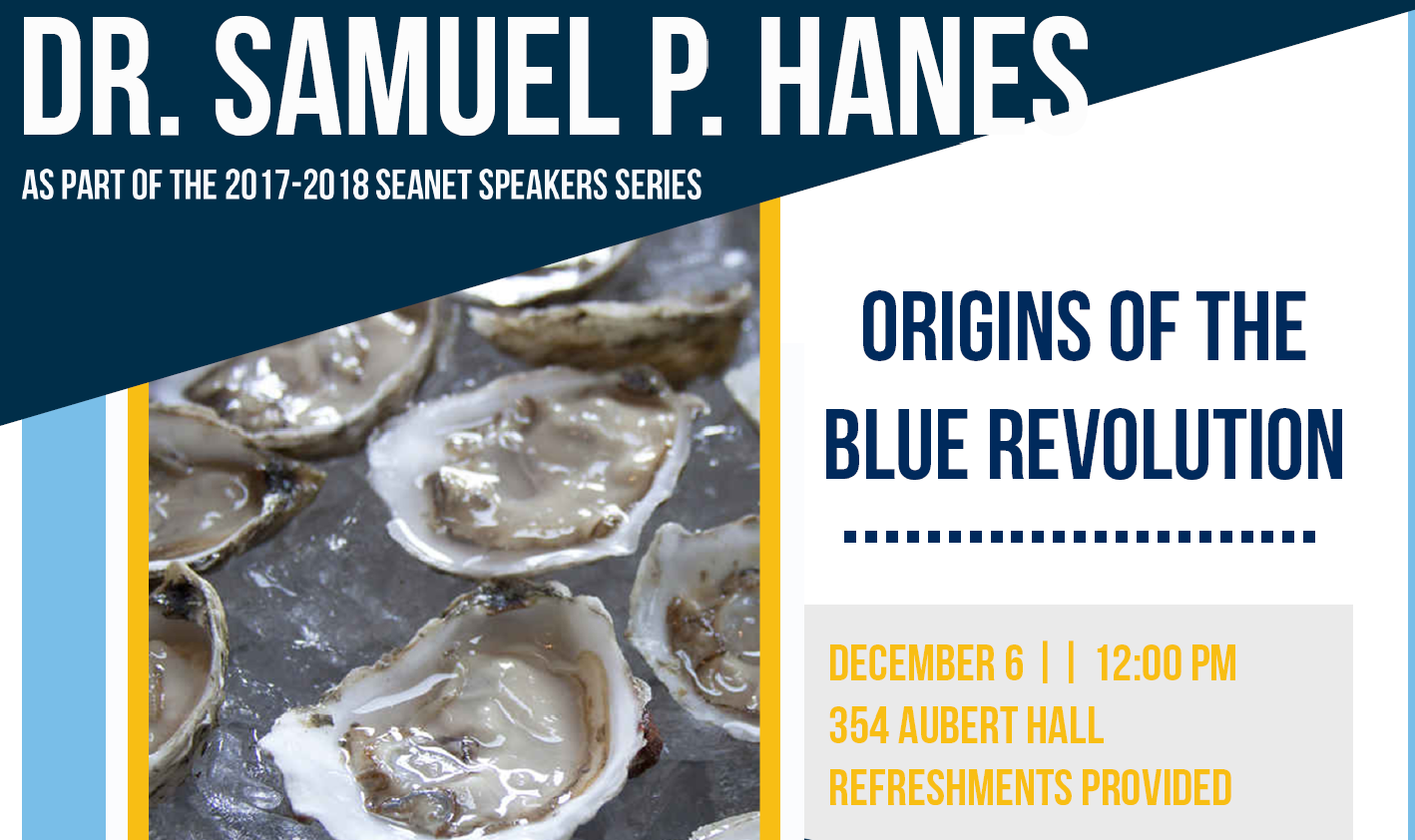
Upcoming Talk: Dr. Samuel Hanes on “Origins of the Blue Revolution”
December 6 || 12:00pm || 354 Aubert Hall
Where and when did the Blue Revolution begin? What controversies did it spawn and what can we learn from them? Aquaculture is ancient, but marine aquaculture science began on the French coast in 1853, with E.V. Coste’s extensive oyster farm experiments. These experiments failed, but on the other side of the Atlantic, the American oyster aquaculture grew into a large scale industry after 1865. Aquaculture expansion seemed the best cure for rampant over-fishing in the oyster industry. However, oyster farms often took marine space away from oyster fishermen. This presentation explains how oyster farmers and fishermen solved these conflicts over marine space.
This event is free and open to all. Refreshments will be provided.
For more information, please contact Meggan Dwyer at meggan.dwyer@maine.edu
About Dr. Hanes:
Sam Hanes is an Assistant Professor in the Department of Anthropology at the University of Maine. His research focuses on historical geography and human ecology. His current work includes research on the evolution of oyster management in the U.S. and a study on the human dimensions of pollination in the Northeast. Hanes is also part of a team researching the history of aquaculture in Maine.
Hanes’ previous academic appointments include positions as an Instructor and Associate Faculty in the Departments of Anthropology, English, Marine Science, and the Honors College, all at the University of Maine. He also serves as a graduate and honors thesis advisor. Prior to coming to the University of Maine, Hanes taught at Rutgers University, in their departments of Human Ecology, English, and Geography.
In addition to his research and teaching activities, Hanes served as a session chair for both the 2014 Society for Human Ecology Conference and the 2013 and 2014 Annual Meeting of the Society for Applied Anthropology.
Funding for Hanes’ research has come from the Maine EPSCoR program, the Mitchell Center for Sustainability Science Emerging Opportunities program, the National Science Foundation, the U.S. Department of Agriculture, and the Center for Continuing and Distance Education. His work has been published in several peer-reviewed journals including Human Ecology, the Journal of Rural Studies, Ecological Economics, Renewable Agriculture and Food Systems and the Journal of Cultural Geography.
